Cancer remains one of the most challenging health conditions of our time, affecting millions of lives globally. While modern medicine has made significant strides in treatment and early detection, prevention through diet and lifestyle remains a powerful approach. Nature provides an array of foods rich in bioactive compounds that support the body’s defense mechanisms, reduce oxidative stress, and may slow or inhibit the growth of cancer cells. Below is an in-depth look at natural foods scientifically linked to cancer prevention and management.
1. Cruciferous Vegetables
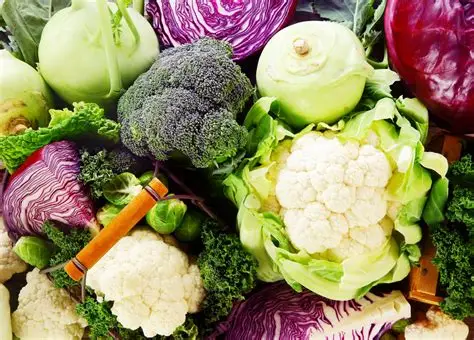
Examples: Broccoli, cauliflower, Brussels sprouts, kale, cabbage
- Active compounds: Sulforaphane, indoles, isothiocyanates.
- How they help: These compounds support detoxification enzymes, reduce inflammation, and may slow the growth of tumors. Sulforaphane in broccoli, for instance, has been shown to target cancer stem cells and reduce recurrence risk.
2. Berries
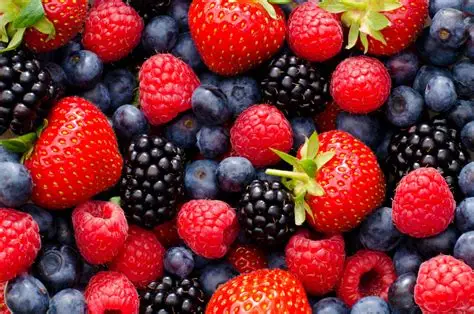
Examples: Blueberries, strawberries, blackberries, raspberries
- Active compounds: Anthocyanins, ellagic acid, vitamin C.
- How they help: Their high antioxidant content helps neutralize free radicals, protecting DNA from mutations. Ellagic acid specifically can slow the growth of cancer cells and enhance apoptosis (programmed cell death).
3. Garlic and Onions
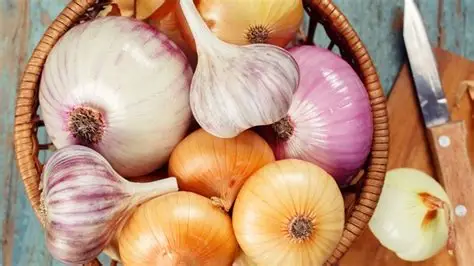
- Active compounds: Allicin, organosulfur compounds, quercetin.
- How they help: Garlic enhances immune system function and may reduce the risk of stomach and colorectal cancers. Onions contain flavonoids that suppress tumor growth and help prevent angiogenesis (the formation of new blood vessels that feed tumors).
4. Green Tea
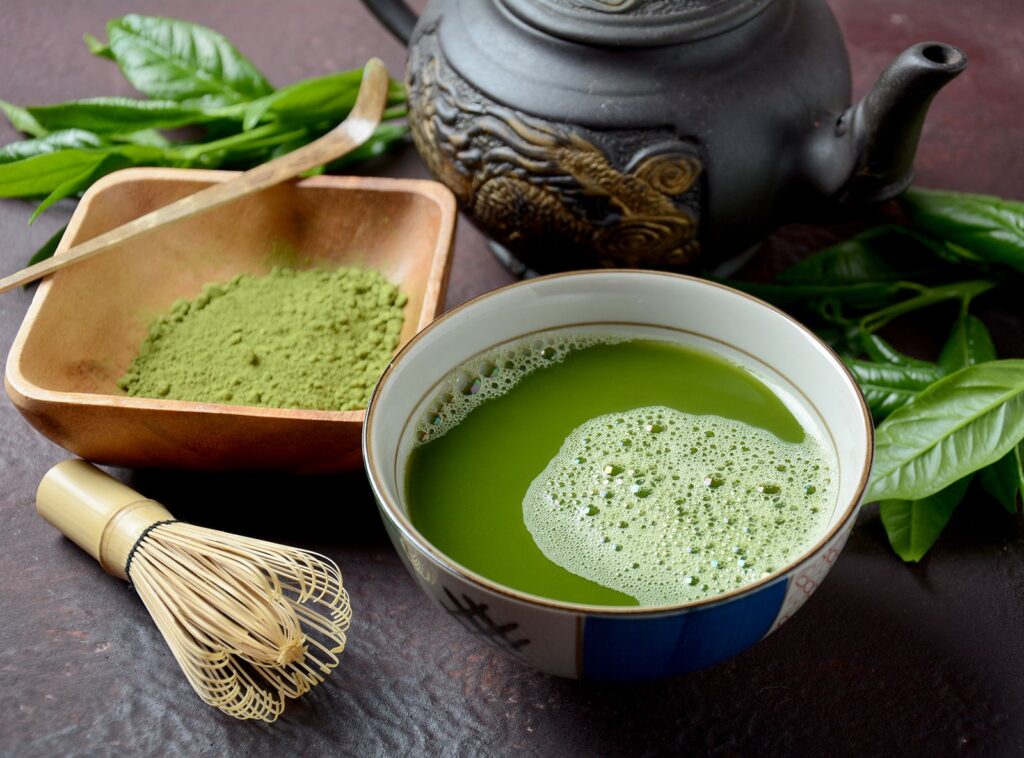
- Active compounds: Epigallocatechin gallate (EGCG), catechins.
- How it helps: Green tea polyphenols are potent antioxidants and have been shown to reduce tumor growth, inhibit metastasis, and block the formation of carcinogenic compounds.
5. Tomatoes
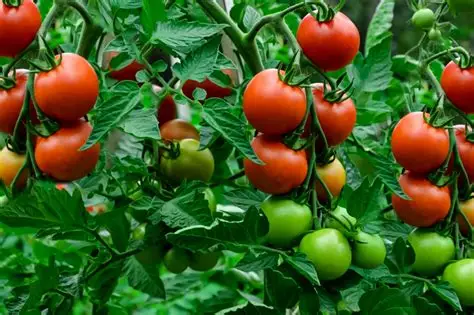
- Active compound: Lycopene.
- How it helps: Lycopene is a carotenoid with strong antioxidant properties that protects against prostate, breast, and lung cancers. Cooking tomatoes enhances lycopene absorption, making tomato sauce, paste, or soup highly beneficial.
6. Turmeric
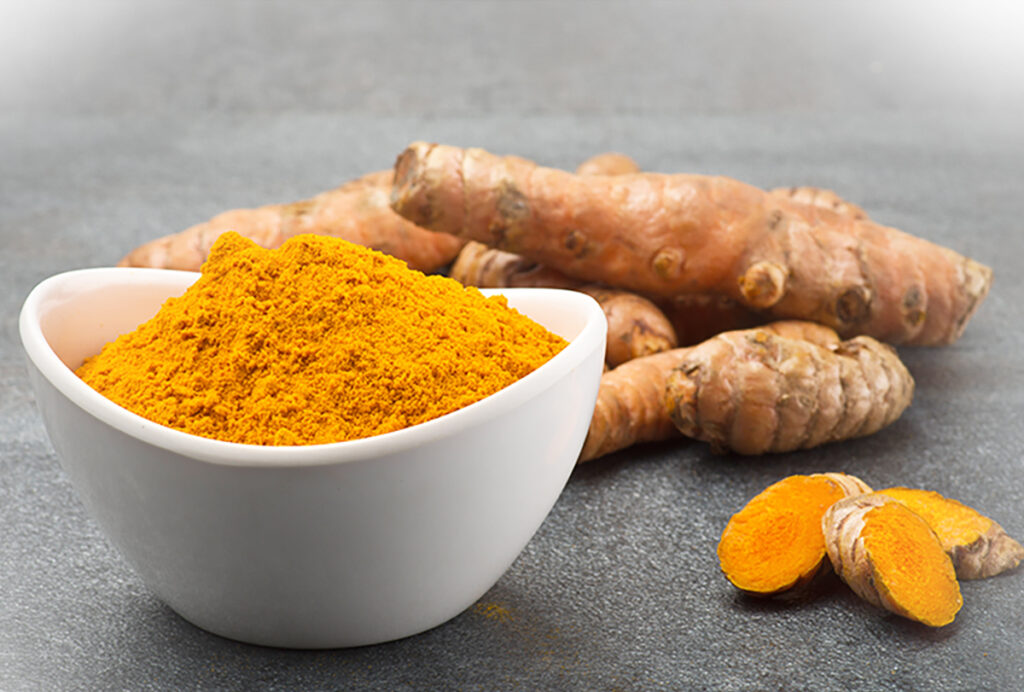
- Active compound: Curcumin.
- How it helps: Curcumin is a powerful anti-inflammatory and antioxidant. It interferes with multiple cancer development pathways, including cell proliferation, angiogenesis, and metastasis. It’s particularly studied in colon, breast, and pancreatic cancers.
7. Nuts and Seeds
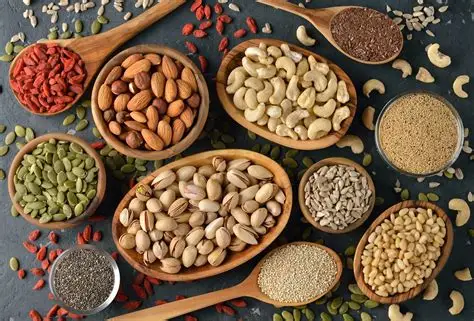
Examples: Walnuts, flaxseeds, chia seeds, sunflower seeds
- Active compounds: Omega-3 fatty acids, lignans, selenium, vitamin E.
- How they help: Walnuts and flaxseeds contain compounds that reduce tumor growth. Selenium-rich Brazil nuts support DNA repair and enhance immune function. Vitamin E in seeds protects cells from oxidative stress.
8. Leafy Greens
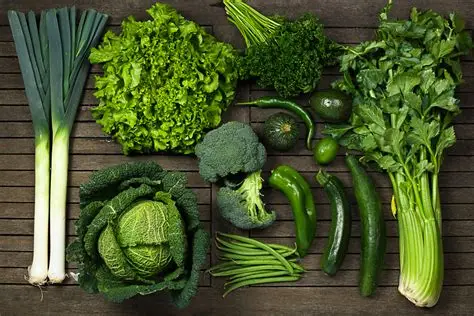
Examples: Spinach, kale, Swiss chard, arugula
- Active compounds: Folate, carotenoids, chlorophyll.
- How they help: Folate supports DNA repair, while carotenoids (like lutein and zeaxanthin) act as antioxidants. Chlorophyll may block carcinogens from binding to DNA, reducing cancer initiation.
9. Citrus Fruits
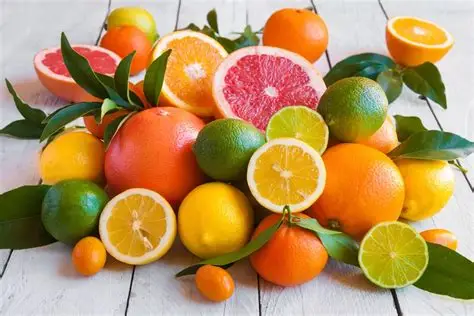
Examples: Oranges, lemons, grapefruits
- Active compounds: Vitamin C, flavonoids (hesperidin, naringenin).
- How they help: Vitamin C enhances immune response and repairs cellular damage. Flavonoids found in citrus fruits reduce inflammation and may inhibit tumor progression.
10. Whole Grains and Legumes
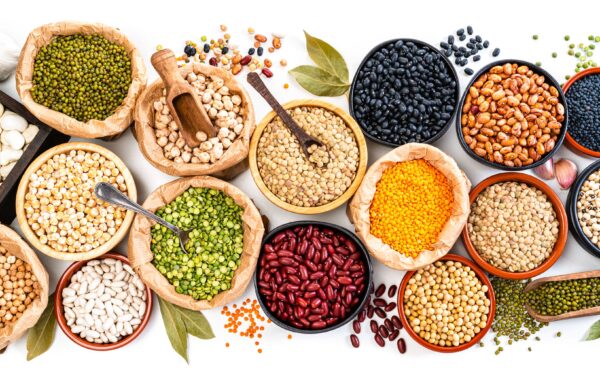
Examples: Brown rice, oats, lentils, chickpeas, beans
- Active compounds: Fiber, saponins, phenolic acids.
- How they help: High-fiber diets lower the risk of colorectal cancer by promoting healthy digestion and gut microbiota. Saponins and phenolic compounds also reduce oxidative stress and inflammation.
11. Mushrooms
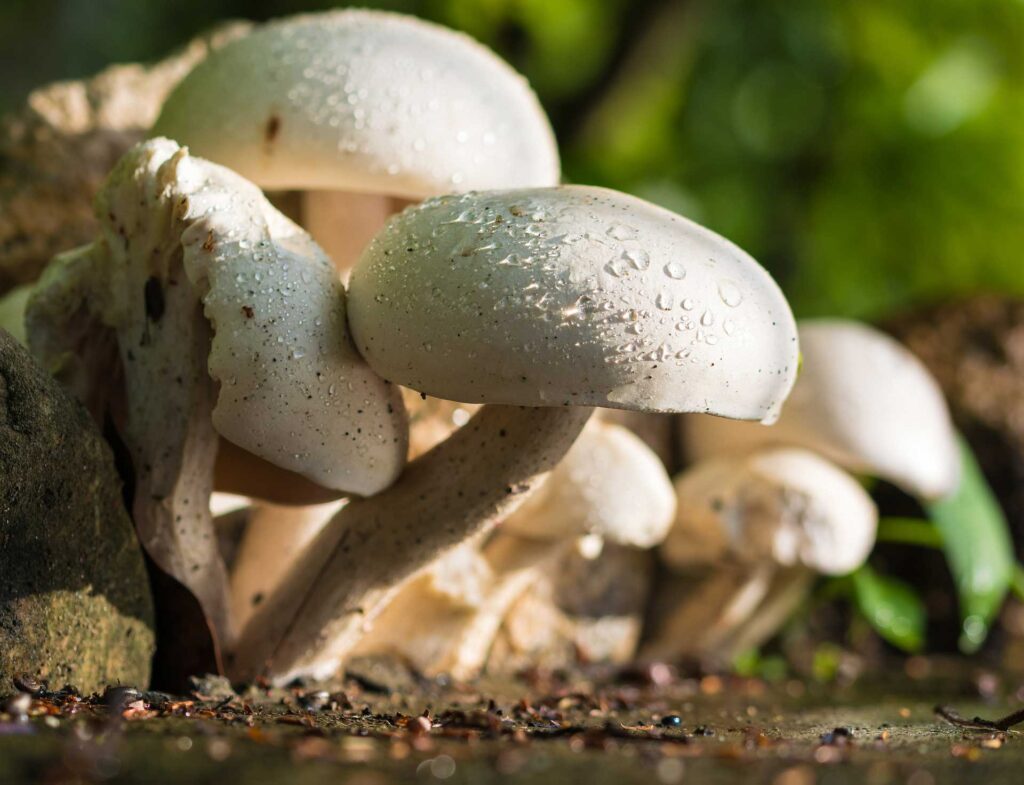
Examples: Shiitake, maitake, reishi, white button mushrooms
- Active compounds: Beta-glucans, polysaccharides, ergothioneine.
- How they help: Mushrooms enhance immune system activity, reduce inflammation, and contain antioxidants that protect DNA from damage. Certain varieties are being studied for their ability to inhibit tumor growth.
12. Grapes (Especially Red and Purple)

- Active compound: Resveratrol.
- How it helps: Resveratrol has anti-inflammatory, antioxidant, and anti-cancer properties. It inhibits cancer cell growth and prevents metastasis, particularly in breast and colon cancers.
Practical Tips for Incorporating These Foods
Eat a colorful plate – Aim for a variety of fruits and vegetables to maximize protective compounds.
- Choose whole over processed – Whole grains, fresh fruits, and raw nuts retain more nutrients than processed versions.
- Use spices wisely – Add turmeric, garlic, and ginger to meals regularly.
- Stay consistent – Cancer-fighting benefits come from long-term dietary habits, not occasional consumption.
Final Thoughts
No single food can prevent or cure cancer on its own. However, a diet rich in natural, whole foods provides powerful protection against oxidative stress, chronic inflammation, and DNA damage—three key drivers of cancer. Combined with regular exercise, proper sleep, and stress management, these foods can serve as an effective defense system and support overall health.


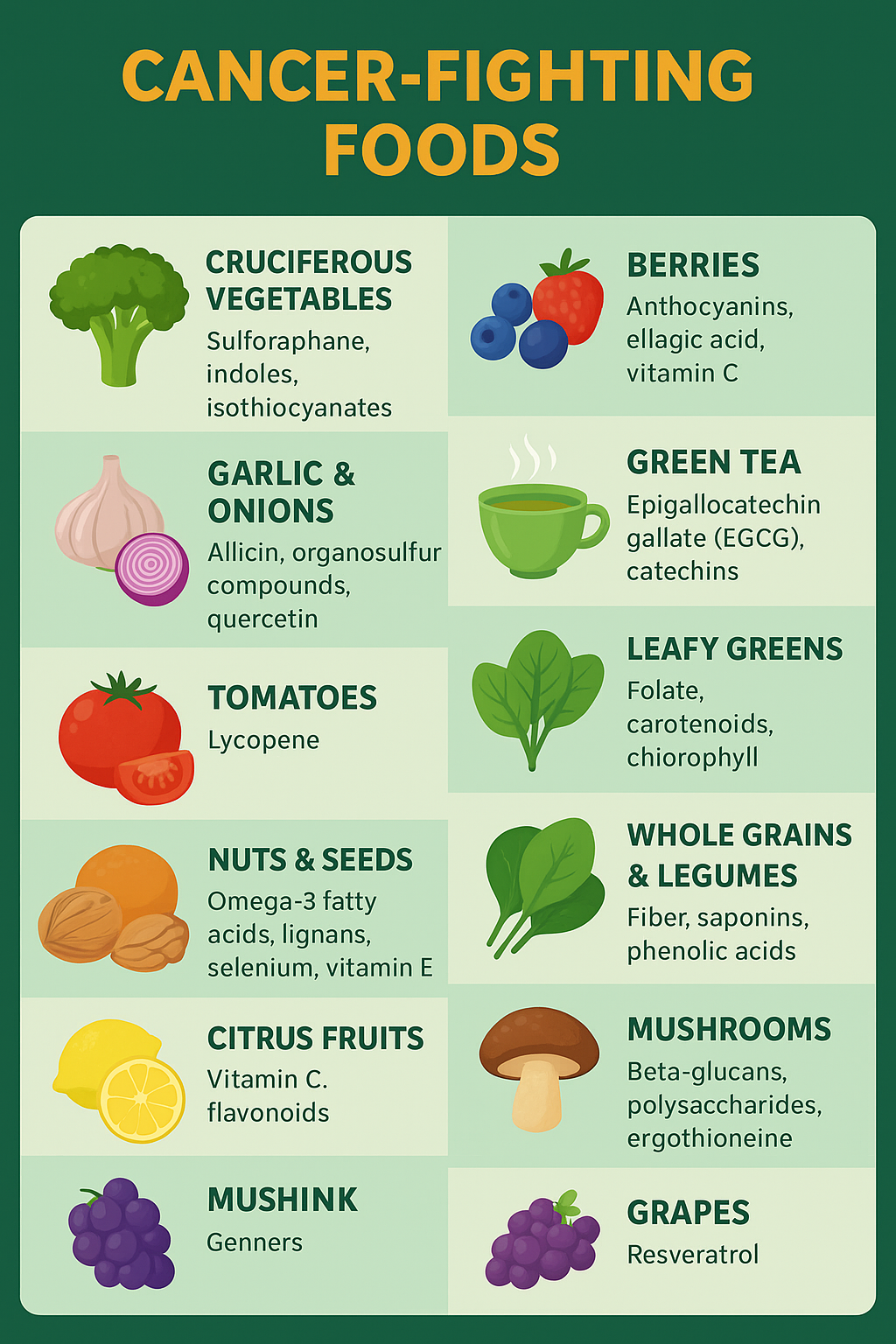
Can you be more specific about the content of your article? After reading it, I still have some doubts. Hope you can help me.